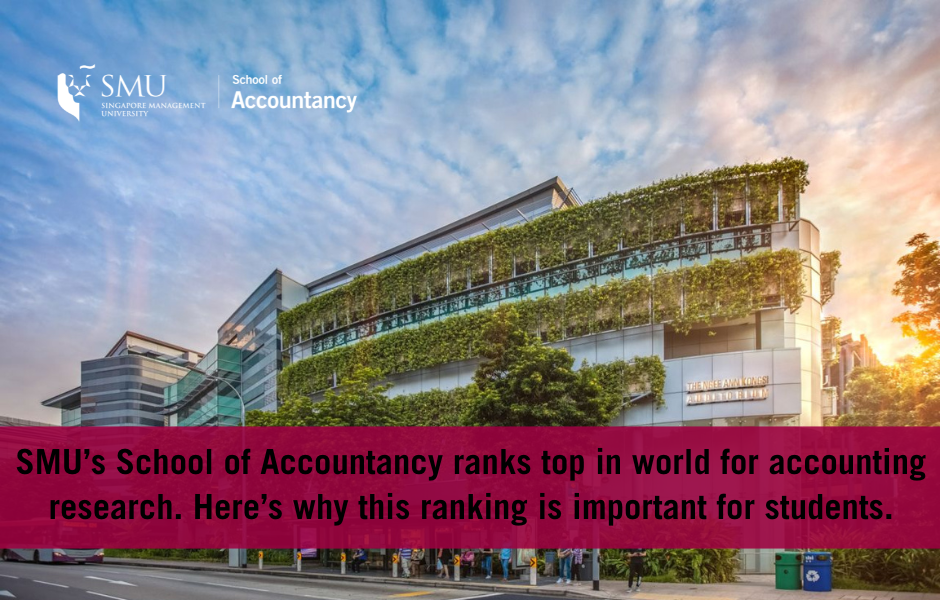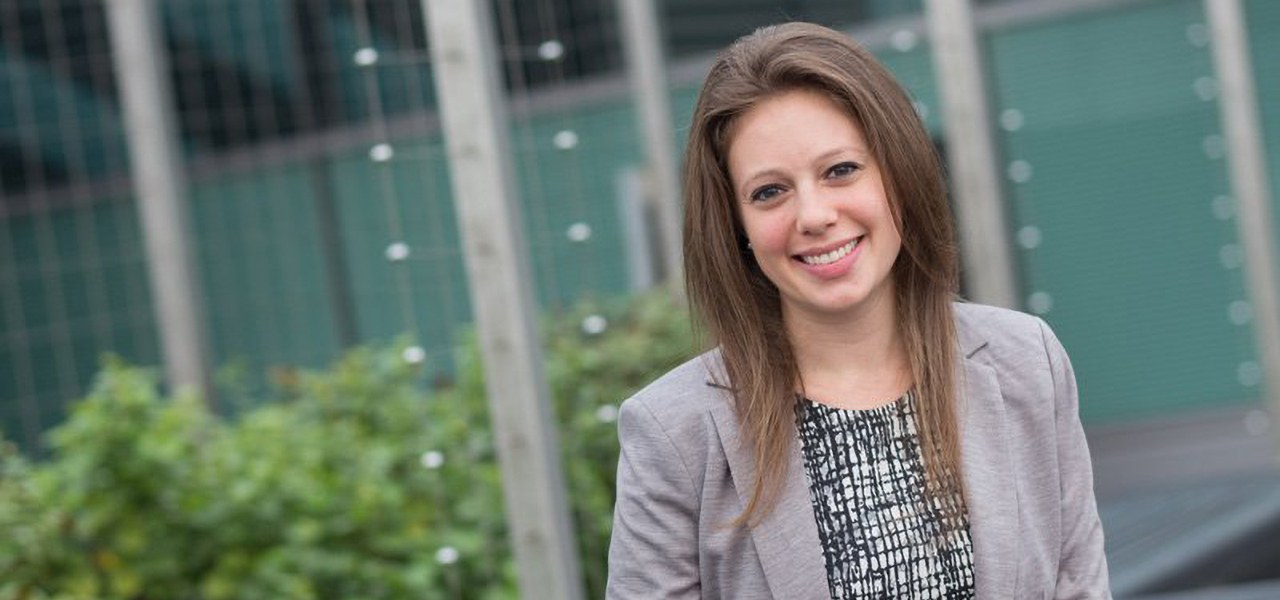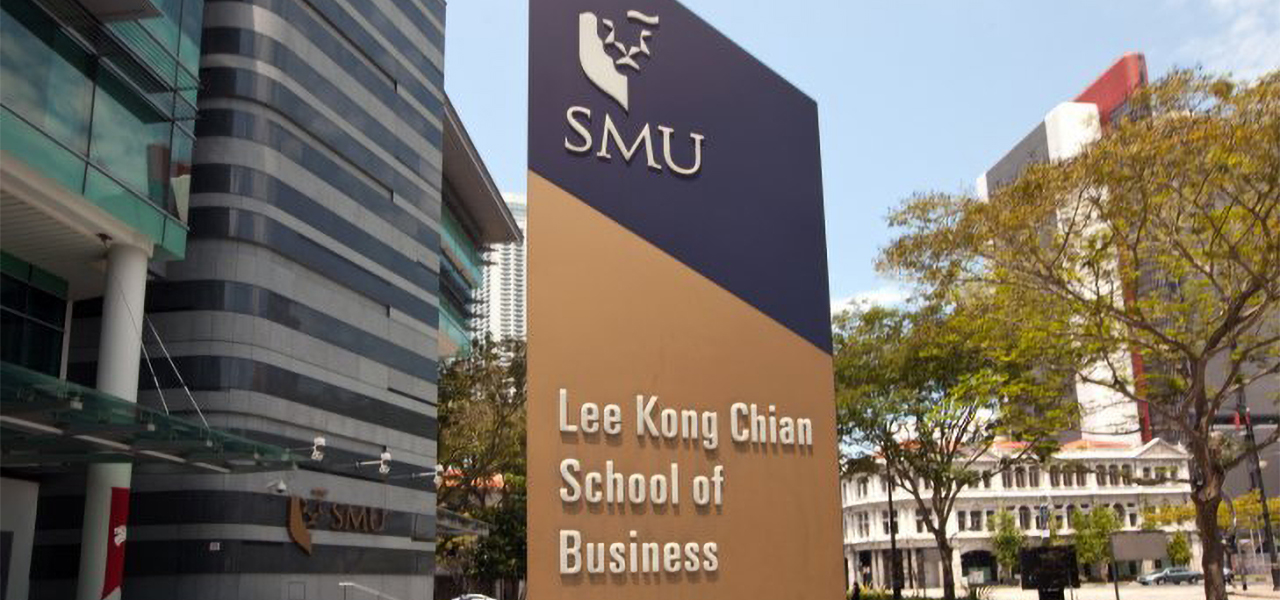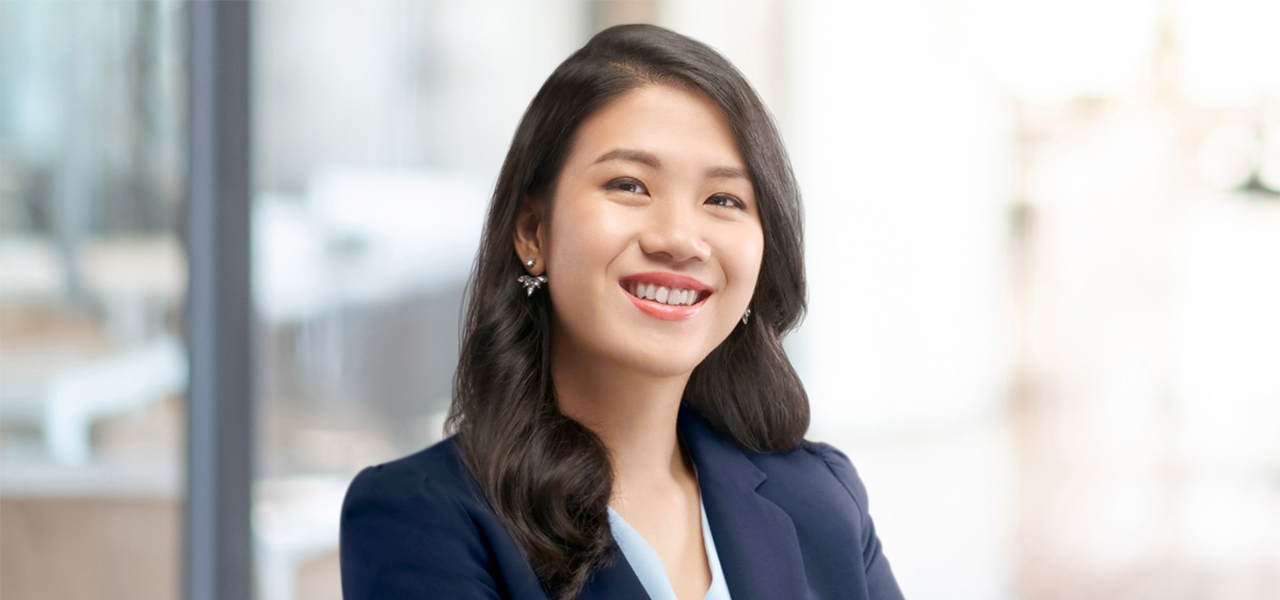As the business world undergoes a period of rapid change, accountants are also having to acquire new skills. Singapore Management University’s School of Accountancy’s (SOA) strong emphasis on research gives it a deep understanding of the accounting industry and how it is evolving.
SOA Advisory Board Member Philip Yuen, Chief Executive Officer, Deloitte Southeast Asia and Chairman, Deloitte Singapore, says: “Change is now a constant, and as businesses evolve to thrive in change, the accountancy profession needs to evolve in tandem to provide insightful advice to help businesses navigate and chart their path.”
Against this backdrop of change, accounting research plays an important role in helping to connect academics, industry practitioners and regulators to shape the future of the profession. SOA’s commitment to research is demonstrated by ranking top in the world in three areas in the Brigham Young University Accounting Research Rankings 2021, published in February 2022.
The school placed first globally for Citation Rankings, Archival Research (All Topics) and Archival Research (Financial Accounting) in the exercise, which measures the intellectual contribution members of accounting faculties have made to the profession.
At the same time, it came top in Asia for All Areas and All Discipline Research, and seventh in the world in the overall rankings, putting it among the leading universities globally.
“Earning the top spot in this ranking is testament to SOA’s commitment to developing accountants with the necessary knowledge, skills and aptitude to grow and thrive in the future of accountancy, as the profession changes to meet the needs of the evolving marketplace,” Yuen says.
Rankings of this kind are important indicators for students, as they not only attest to the calibre of faculty at highly ranked institutions, but they also reflect the quality of the programmes they offer. In fact, SOA also ranked in the top 50 in the QS World University Rankings by Subject 2022: Accounting and Finance.
SOA’s strong research track record gives it an in-depth understanding of the accountancy profession, and this is translated into a forward-looking syllabus that ensures graduates are equipped with the skills the industry needs most.
Yuen explains: “Its curriculum is research-led and draws from the experience of different industry parties towards skilling up the next generation of accountants. SOA’s strong industry understanding, and innovative teaching methods will help Singapore’s efforts to remain a leading global accountancy hub.” He gives the example of SOA’s new Bachelor of Accountancy (BAcc) Second Major in Financial Forensics, with modules that include forensic accounting, blockchain applications and cybersecurity. The school also offers a Second Major in Accounting Data and Analytics, through which it collaborates with Deloitte on the content.
“These innovative and research-driven programmes are important to equip accountancy undergraduates with the skills that are becoming increasingly valuable in the profession,” Yuen says. He adds that SOA is unique for its modules that collaborate or are developed in consultation with industry stakeholders, including professional services firms, major corporations and regulatory agencies.
“When students learn from these industry stakeholders, they will gain insights which can be applied to their work in the future, making them better able to be efficient and to add value to their clients.”
For its Master of Professional Accounting (MPA), which is accredited by 11 different government, academic and regulatory bodies, the school works closely with the industry to ensure graduates are equipped for the ever-changing business world, particularly in areas such as new technology. Graduates acquire a range of skills beyond core accounting and business competencies, with elective courses offered in emerging areas such as machine learning for business, data management, and blockchain and the new economies. Meanwhile, the Professional Development series of workshops offers them the opportunity to enhance their knowledge in areas in which they have a particular interest.
To reflect the global nature of today’s business world, students also have the opportunity to take part in overseas study immersion programmes and exchanges to help broaden their international perspective, as well as gaining valuable industry experience through internships.
For those who want to develop expertise in applying data technology in accounting, SOA offers a Master of Science in Accounting (Data and Analytics) (MSA). The programme, which is the first of its kind in Asia, equips students with the programming, machine learning, and data analytics skills to harness data to gain insights and make business decisions. It combines teaching on the use of the latest analytics technology with real-world experience through using actual company case studies and SMU-X, an innovative module through which students collaborate on projects with corporates, non-profits and government organisations.
In today’s intensely competitive environment, Yuen thinks high-performing graduates from top-ranked universities starting their careers have a leg up, particularly in terms of securing a first interview with a potential employer. He explains that this is because organisations trust that these graduates will have what it takes to excel in their work.
In fact, graduates from SOA’s post-graduate programme enjoy high employment rates, with 82% of MPA and 93% of MSA students employed within six months of graduation, with many MPA graduates taking on key executive roles upon completing the programme.
“SOA’s keen focus on both academic excellence and industry knowledge will give its students a balanced education, one that will prepare them to understand the opportunities and challenges they will likely face when they graduate. Their holistic education will allow them to thrive in their careers and provide them with the foundation to take on key executive roles,” Yuen says.





